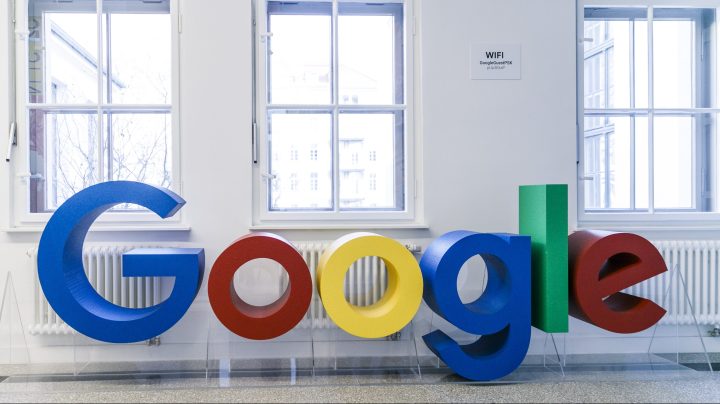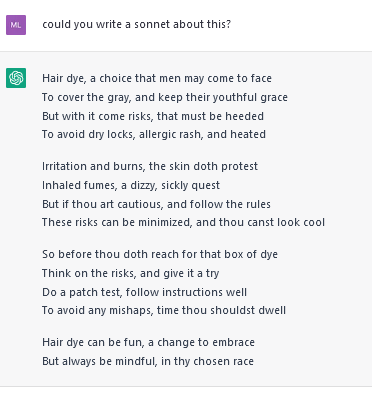
Can AI chatbots like ChatGPT compete with Google search?

If you haven’t played with ChatGPT before, it really is amazing.
It’s kind of like having a friend who read the entire internet. Type in a question, and it’ll type back a response. Here, take a look.

Over a month ago, just about the entire internet freaked out over ChatGPT, the artificial intelligence chatbot created by a San Francisco-based company called OpenAI.
Not only could it produce a wholly original response to queries about the risks of hair dye in seconds, it could write a sonnet about it — also in seconds.

You could understand why the folks at Google are worried. According to the New York Times, management there has reportedly declared ChatGPT a “code red” threat to the company’s biggest moneymaker: the Google search engine.
“The current search paradigm of, ‘Here are a set of 10 opaque links, you will find what you want in one of these.’ We think that is going to be decisively changed,” said Sridhar Ramaswamy, cofounder of Neeva, a search engine startup that is experimenting with AI like ChatGPT.
Ramaswamy used to run Google’s advertising division but got frustrated with how he saw those ads distorting search results. With AI, there’s no more bouncing around 30 different hair dye links, fighting through sponsored content from Just for Men.
“It’s like a universal web explainer where you get the information — sometimes distilled, sometimes at more detail — at levels that are appropriate for you,” said Ramaswamy.
But while large language AI models (the tech behind Neeva and ChatGPT) are impressive, they’re still a work in progress. Sometimes when it doesn’t know an answer, it just makes stuff up. There’s actually a term for this: AI hallucinations.
“Large language models, for the most part, have been trained to speak, to just say things. And they have not necessarily been taught things like absence of knowledge,” Ramaswamy said.
The accuracy question will be critical in shaping what the future of AI-enabled search looks like, per Charlotte Slaiman at the advocacy group Public Knowledge.
It’ll be an uphill climb to unseat Google. By some estimates, it has more than 90% of the current search market.
With that market dominance comes an unfathomable amount of user data — data it can leverage to train its own large language AI model, which it’s already developed.
Slaiman fears that because large language models improve as more users test them out, the market may play out similar to traditional search, with one behemoth.
“That’s going to have that same snowball effect where the big get bigger,” Slaiman said.
Google declined to be interviewed for this story.
A key question for the company is how it will monetize an AI product without sacrificing the tens of billions it gets from those ads that pop up with your search.
Anton Korinek, who researches AI at the Brookings Institution, predicts a blend of ad-supported and ad-free subscriptions.
“Something like Google Assistant may every now and then when you’re shopping earn a commission based on ads,” said Korinek. “But I can also imagine that there’s going to be chat-based personal assistants that you will be paying for.”
For Korinek though, how AI will revolutionize search is just the tip of the iceberg. He thinks within the next decade, it will pretty much revolutionize everything — including public radio.
“It will probably be able to throw out soundbites that sound like you,” Korinek said. “It may not quite be able to produce a whole episode of ‘Marketplace,’ but maybe GPT4 will be.”
GPT4 is the next iteration and could debut sometime later this year.
There’s a lot happening in the world. Through it all, Marketplace is here for you.
You rely on Marketplace to break down the world’s events and tell you how it affects you in a fact-based, approachable way. We rely on your financial support to keep making that possible.
Your donation today powers the independent journalism that you rely on. For just $5/month, you can help sustain Marketplace so we can keep reporting on the things that matter to you.

















